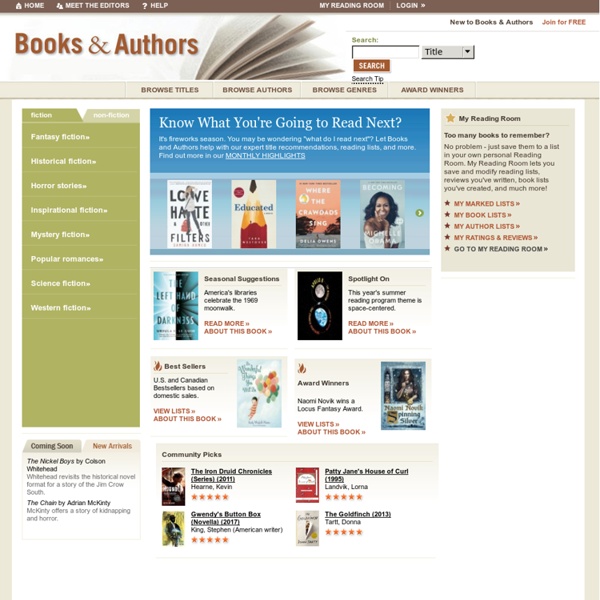Expert Book Reviews, Recommendations, Author Biographies - Books and Authors
Related: reader advisory
ReadersAdvice.com
EPIC / Homepage - Te Kete Ipurangi (TKI)
Kia ora and welcome to EPIC. EPIC is a venture between New Zealand libraries and the Ministry of Education, giving schools free access to a worldwide range of electronic resources. EPIC resources are purchased annually through the EPIC consortium on a subscription basis by the Ministry of Education for access by all New Zealand schools. What is available? Through EPIC schools can access databases containing curriculum related content from thousands of up-to-date, full text international and New Zealand magazines, newspapers, biographies, substantial reference works, images, e-books, multi-media resources and much more. Visit the Databases page for descriptions of the resources, and to filter by learning area and school level. How do I access EPIC? Use the links below (and from the Databases page) to access the EPIC resource that you are interested in searching. For EPIC school login queries email: epic@epic.org.nz Who can use EPIC? Where can I find more information?
iread / FrontPage
Good Reads Share Book Recommendations With Your Friends, Join Book Clubs, Answer Trivia
Book Nook Club
Bobs Books Blog | Childrens and Young Adult Book Reviews by Bob Docherty
Welcome to Who Else Writes Like...?
Free eBooks at Planet eBook - 80+ Classic Novels and Literature
ReadySteadyBook - for literature...
Related:



